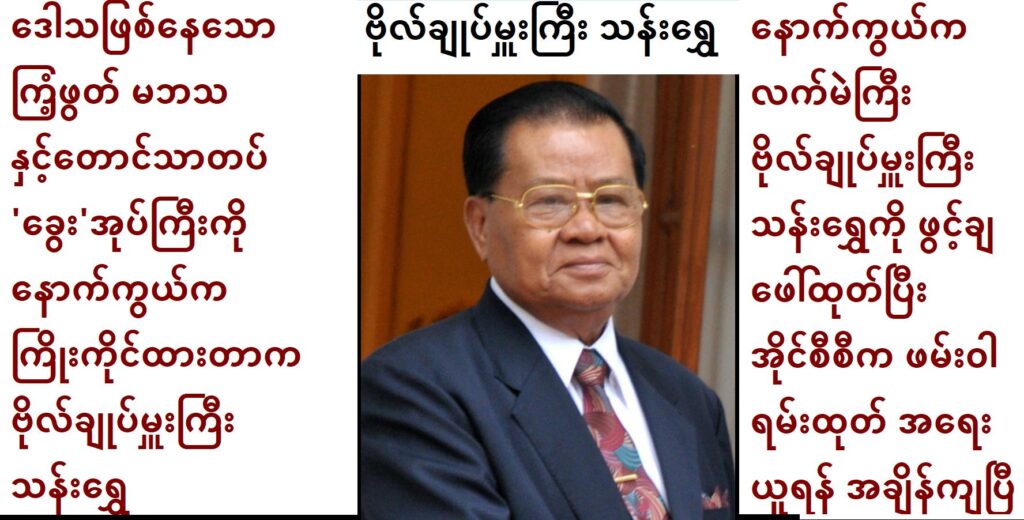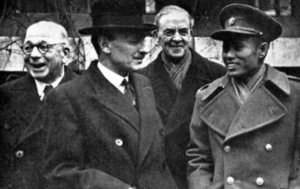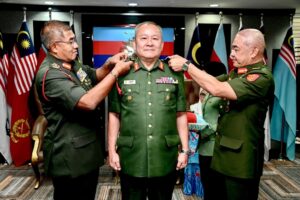
Photo Credit By Prime Minister’s Office (GODL-India), GODL-India, https://commons.wikimedia.org/w/index.php?curid=112741647
Confidential Legal Memorandum
Subject: Legal Assessment of Sr. General Than Shwe’s Responsibility for Anti-Muslim Atrocities and Rohingya Genocide in Myanmar
Prepared for: Myanmar Muslims News Network (MMNN)
Prepared by: Legal Advocacy & Accountability Review Committee (International Human Rights Law Division)
Date: 24th. June 2025
I. Introduction
This memorandum presents a legal framework to investigate and hold accountable retired Senior General Than Shwe, who served as Myanmar’s head of state and Commander-in-Chief of the Armed Forces from 1992 to 2011. It is well established that Than Shwe was the architect behind state-sponsored anti-Muslim violence, hate speech campaigns, the institutionalization of religious discrimination, and ultimately the persecution and genocide of Rohingyas and other Muslim minorities. His influence remained intact even after his formal retirement, as he continued to operate as the shadow power behind subsequent military and quasi-civilian regimes.
II. Executive Summary of Allegations
- Ideological and Operational Command: As former head of the military propaganda unit, Than Shwe pioneered the ideological groundwork for Buddhist supremacy and Islamophobia, laying the foundation for Ma Ba Tha and 969 movements.
- Creation of Extremist Movements: Than Shwe covertly sponsored the formation and expansion of ultranationalist groups like Ma Ba Tha, which promoted hate speech and violence against Muslim communities.
- Systematic State Violence: Under his command and subsequent shadow influence, atrocities occurred across Myanmar—including in Meiktila, Mandalay, Taung Goke, and Rakhine State—targeting Muslims and particularly the Rohingya.
- Rohingya Genocide: His administration initiated the legal and bureaucratic erasure of Rohingya identity and citizenship, starting with the 1982 Citizenship Law and continuing through military operations.
- Impunity Through Controlled Transitions: By engineering transitions to figures like Thein Sein and overseeing the rise of USDP-aligned power structures, Than Shwe ensured continued impunity for crimes under his regime.
III. Applicable International Legal Standards
- Rome Statute of the International Criminal Court (ICC):
- Article 6 & 7: Genocide and crimes against humanity—includes mass persecution and displacement.
- Article 25: Individual criminal responsibility for ordering or facilitating crimes.
- UN Convention on the Prevention and Punishment of the Crime of Genocide (1948):
- Than Shwe’s policies and orders show genocidal intent and systematic execution.
- Customary International Law – Command Responsibility:
- Holds leaders accountable for crimes committed by subordinates when they knew or should have known and failed to prevent or punish.
- UN Human Rights Mechanisms:
- UN Fact-Finding Mission on Myanmar directly implicates the Tatmadaw leadership in grave human rights violations.
IV. Evidentiary Support
- Documentary Evidence:
- Videos, official state propaganda, and social media tracing links between Than Shwe’s regime and hate groups (e.g., YouTube link:).
- ဦးသန်းရွှေ (သို့) နေပြည်တော် မင်းသားကြီး
- LETTERS FROM THE IRRAWADDY DELTA where Than Shwe was the commander of SLORC troops massacred Karens in Irrawaddy Delta.
- ဗိုလ်ချုပ်မှူးကြီးအမိန့်နဲ့ ဆင်နွှဲခဲ့ကြရတဲ့ ၁၉၉၈ ခရစ္စတီးကျွန်းပေါ်က လူသတ်ပွဲ
- ဗိုလ်ချုပ်မှူးကြီး သန်းရွှေ ၏ ရာဇဝတ်မှုများ စုံစမ်းရန် WLB တောင်းဆို
- နာဂစ်ဖွဲ့စည်းပုံ သို့မဟုတ် သဘာဝဘေးထက်ဆိုးရွားသော လူသတ်ယန္တရားကြီး
- ၃၁ နှစ်ကြာ တပ်ချုပ်နှစ်ဦးတည်း အာဏာထူထောင်ခန်း
- ‘ဗိုလ်ချုပ်မှူးကြီးသန်းရွှေ’
- ဗိုလ်ချုပ်မှူးကြီးဟောင်း သန်းရွှေ သြဇာ၊ အာဏာ ရှိနေသေးလား
- Witness Testimonies & Survivor Accounts:
- Consistent accounts of targeted violence in regions with known Ma Ba Tha influence.
- Legal and Historical Records:
- Documentation of discriminatory laws, including the 1982 Citizenship Law and race/religion protection laws under Thein Sein’s presidency.
- NGO and Journalist Investigations:
- Reports by Human Rights Watch, Amnesty International, and Reuters link state-backed clergy and propaganda directly to anti-Muslim violence.
- Evidence of Masjid Demolitions and Hate Campaigns:
- Initial reports on mosque destruction documented as early as 2001 and 2002.
- Reference: https://sanooaung.wordpress.com/2009/08/04/masjids-in-burma/
- International Advocacy:
- Nobel Peace Laureates and jurists have urged the UN to initiate a Commission of Inquiry (CoI) to investigate crimes committed during Than Shwe’s rule.
- Reference: https://sanooaung.wordpress.com/2009/08/12/the-supporting-evidences-to-charge-the-myanmar-spdc-criminals-at-icc/
V. Legal Remedies and Strategic Recommendations
- Pursue ICC Prosecution:
- Submit dossier of evidence linking Than Shwe to command responsibility under the Rome Statute.
- UN Security Council Referral:
- Necessary for ICC jurisdiction over non-member state Myanmar. Diplomatic campaign required.
- International Arrest Warrant:
- Secure Interpol Red Notice or related legal instrument through ICC Prosecutor’s Office.
- Domestic Jurisdiction Measures:
- Encourage affected states (e.g., Bangladesh, Malaysia) to adopt universal jurisdiction provisions.
- Sanctions and Asset Freezes:
- Target Than Shwe’s financial networks and family holdings under Magnitsky-type laws.
- Inclusion in Transitional Justice Framework:
- Any future civilian government in Myanmar must include Than Shwe in its truth and reconciliation mechanisms.
VI. Conclusion
Sr. General Than Shwe bears legal and moral responsibility for orchestrating the system of hate, displacement, and mass atrocity that culminated in genocide and crimes against humanity. His background in psychological warfare and propaganda, combined with his cultivation of extremist religious nationalism, renders him a primary suspect in any comprehensive international legal action.
The international community—especially the ICC, UNHRC, and UNSC—must ensure that Than Shwe is not shielded by the passage of time or diplomatic immunity. The victims of Myanmar’s Muslim communities, including but not limited to the Rohingya, deserve justice.
Annex: Supporting Evidence for ICC Charges Against Than Shwe and SPDC
- Annex A: Timeline of Anti-Muslim Campaigns (2001–2012)
- Annex B: Legal Texts – Rome Statute, Genocide Convention, ICCPR, UDHR
- Annex C: Survivor Testimonies, Police Reports, and Mosque Destruction Records
- Annex D: Links and Reports:
Prepared By:
Legal Advocacy & Accountability Review Committee (LAARC)
For Myanmar Muslims News Network (MMNN)
24th. June 2025






